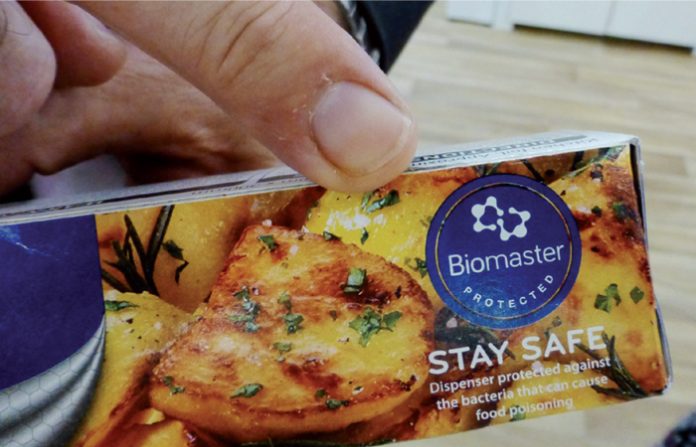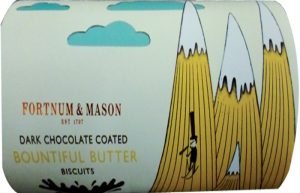
The autumn UK packaging calendar got off to a sizzling start with a showcase of products to make brands stand out through creative uses of natural materials, color communication with a positive environmental slant, and active additives that reduce consumer health risk in the kitchen: these were among the highlights of London’s Packaging Innovations 2016, where big crowds gathered for two days packed with expert talks and panel debates while enjoying respite from the unseasonably high levels of heat and humidity.

A global supplier of premium paper and packaging products with a reputation for precision color matching, James Cropper is now producing recyclable fiberbased molded carton inserts aimed at building brand association and brand experience in sectors including personal care, e-retail, giftware, consumer electronics and homewares. Viewed as a “sustainable alternative to plastics”, the bespoke products produced by the specially created James Cropper 3D Products (JC3DP) business unit offer a challenge to plastics in terms of color, quality, performance and versatility of design, says the company.
Anti-counterfeit technology for brand protection, sensory simulation and deodorizing capabilities and anti-bacterial properties—all are made possible thanks to additives by Addmaster (UK). The big news at Packaging Innovations was that Asda, one of UK’s biggest supermarket chains, had become the first in the retail sector to commercialize Biomaster, incorporated into the outer packaging for its private label kitchen foil and stretch-wrap. The additive is in the printing and does not leach out, said director of marketing Simon Baugh. He explained that bacteria will readily transfer from food to packaging and a pack of foil or clingfilm is frequently handled and notably for a variety of foods, including raw and cooked
meats. Use of the additive began in products aimed at professional kitchens and entry into domestic kitchens marks an important move for the small company based in Stafford. The retailer Marks and Spencer is also using Biomaster in the lining of cool bags. These shopping bags are used time and again for different foodstuffs and the additive aims to help prevent cross-contamination.
A natural and sustainable line of packaging products consisting of coconut fiber and a natural binder was shown by Enkev, of the Netherlands. Cocoform material can be pressed into many different shapes. It provides protection for whatever it is holding, and is bio-degradable and compostable. Production has been scaled up for relative large volumes of Cocoform egg-boxes. The company describes it as “a unique packaging material that really stands out from any other packaging material”. The material is also used in the mattress, footwear, automotive and horticultural sectors.
A line-up of winners from the The Dieline Awards 2016 brought the work of some of the world’s top studios together under one roof. First places for the UK came in the Confectionery, Snacks and Desserts category and the Fresh and Prepared Food category, and went respectively to Together Design for Fortnum and Mason Chocolate Biscuits and to Pearlfisher for its Wagamama Takeaway brand packaging. The honor for Best in Show was awarded to another UK studio, Horse, for Finnish Tåpped Birch Tree Water. Greek design excelled, with Mousegraphics voted Studio of the Year and winner in Personal Care for Duo Condoms. Greece totally swept the board in Dairy, Spices, Oils and Condiments thanks to Marios Karystios, Chris Trivizas and Bob Studio. Japan won two third-place awards, with Keiko Akatsuka’s design for Coco Cookies and a design by Ono and Associates for KADOKUWA Kanroni. The USA enjoyed a bumper haul of awards and in several categories shared the podium with successful designs from Armenia, Croatia, Russia, Spain and Italy as well as Australia, Hong Kong and Vietnam.







